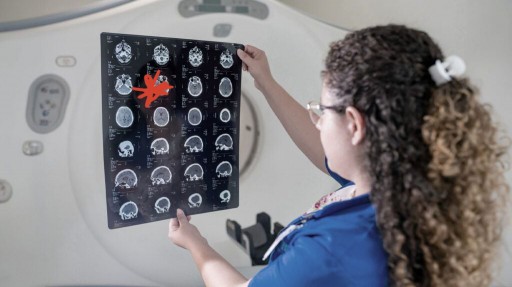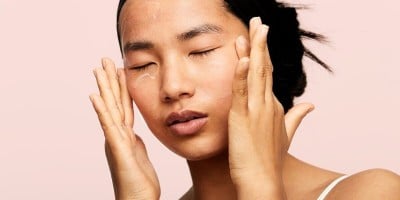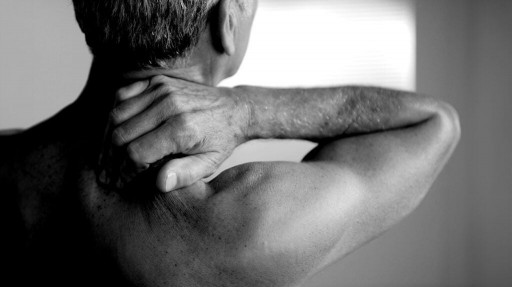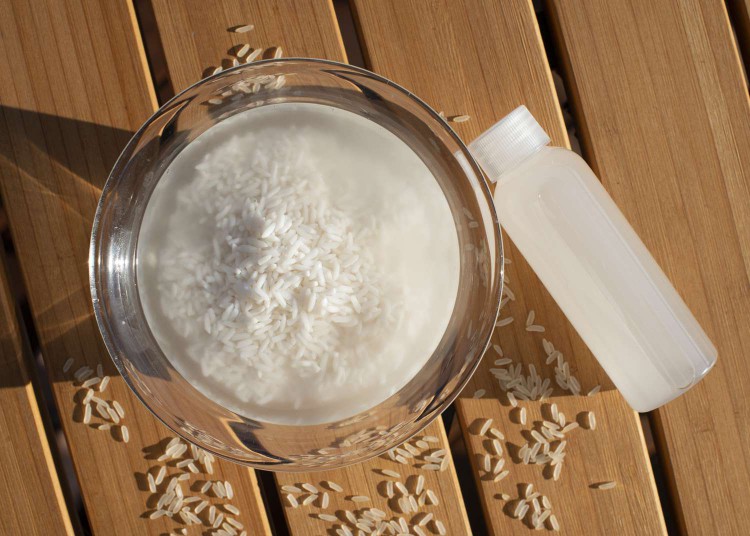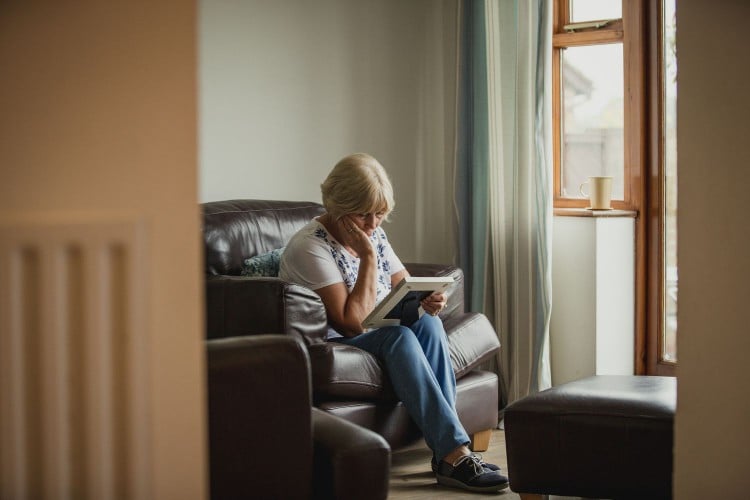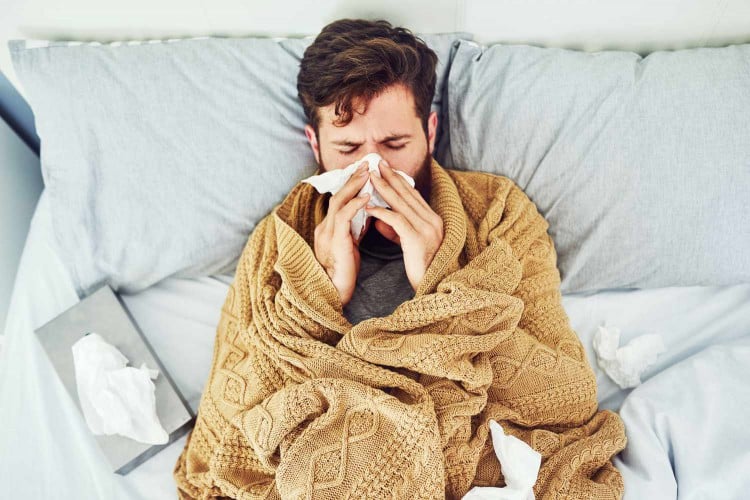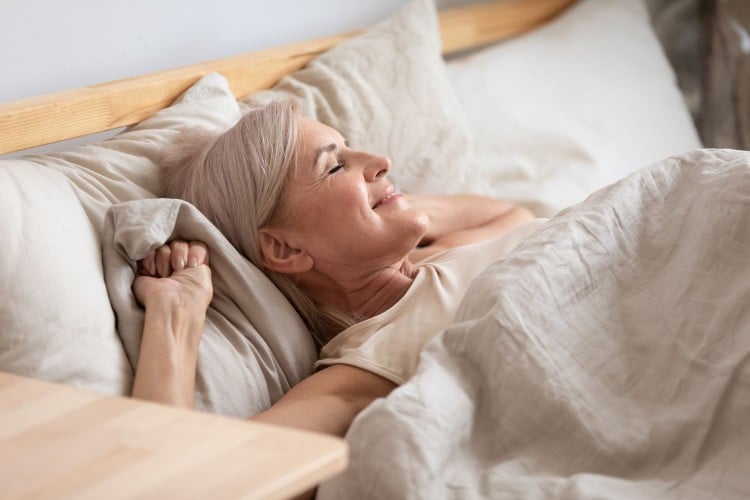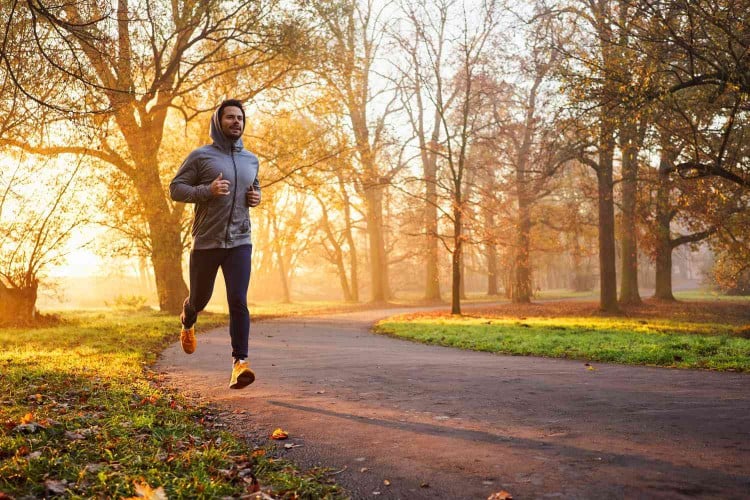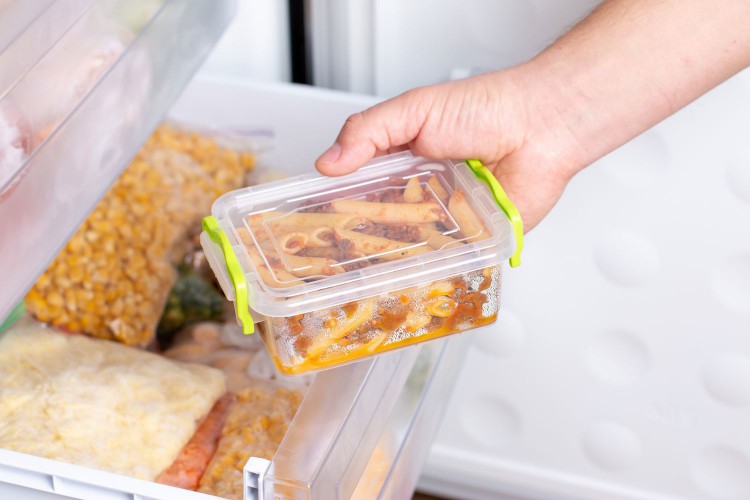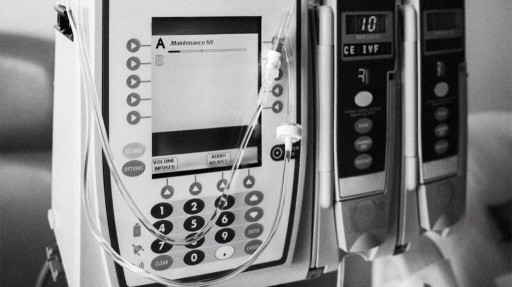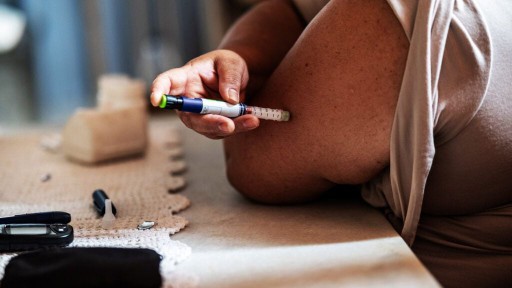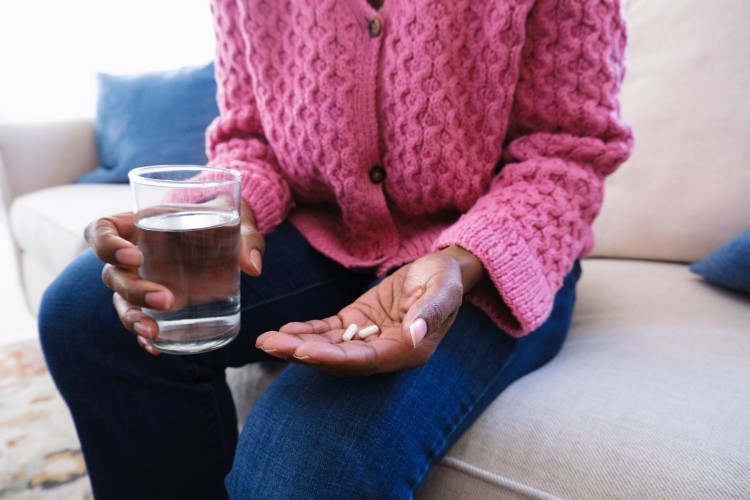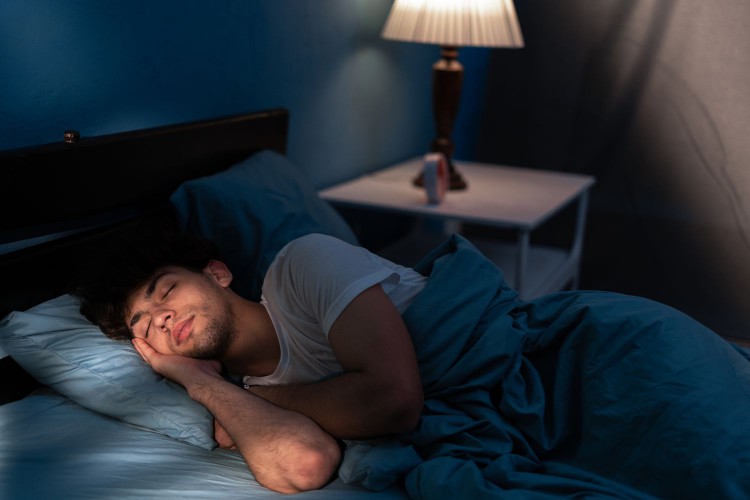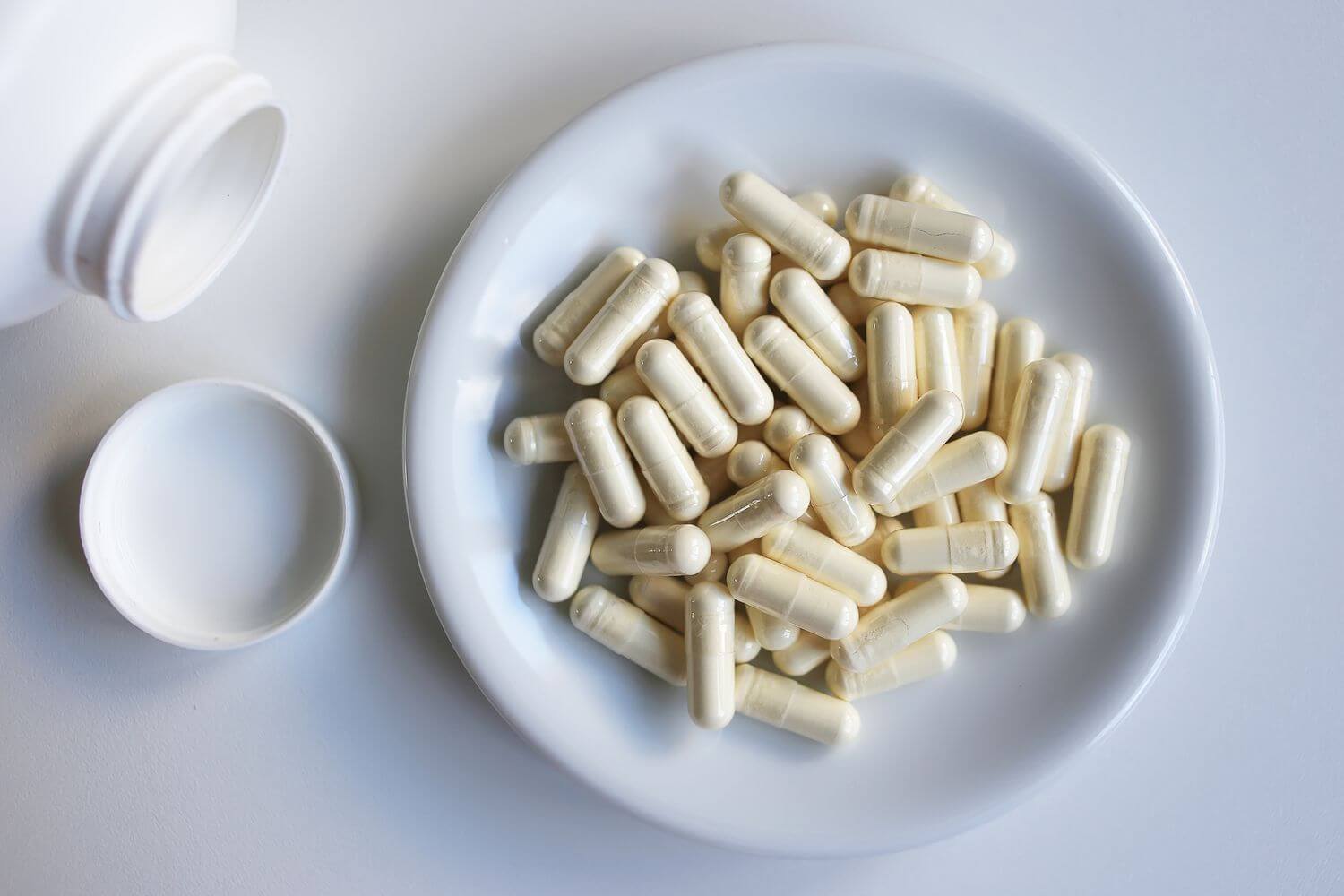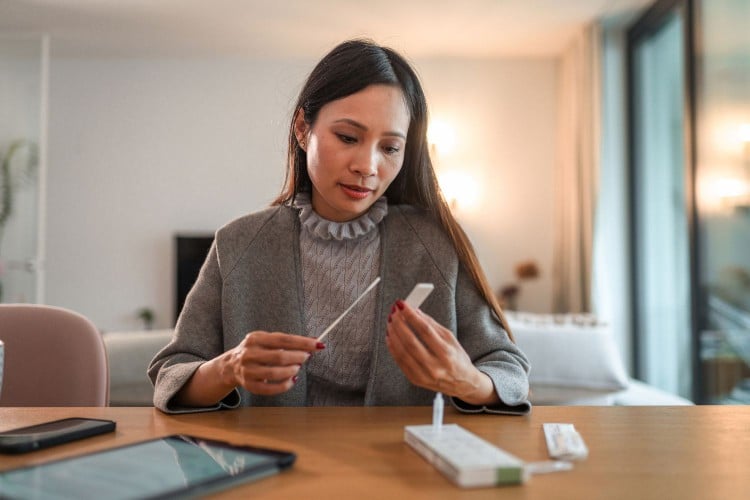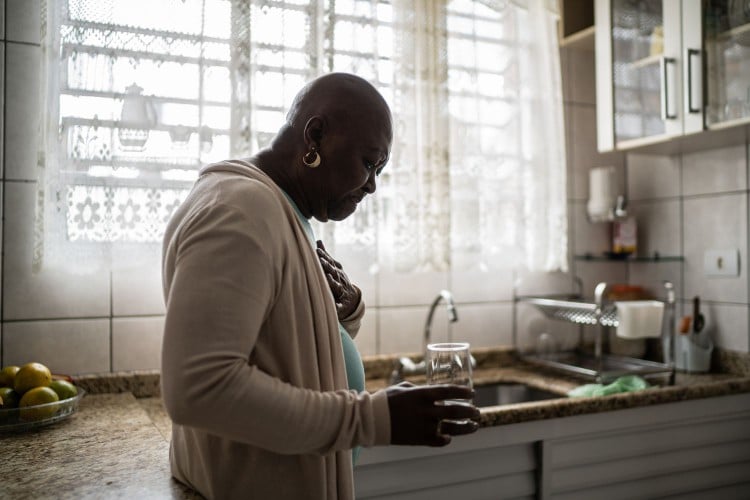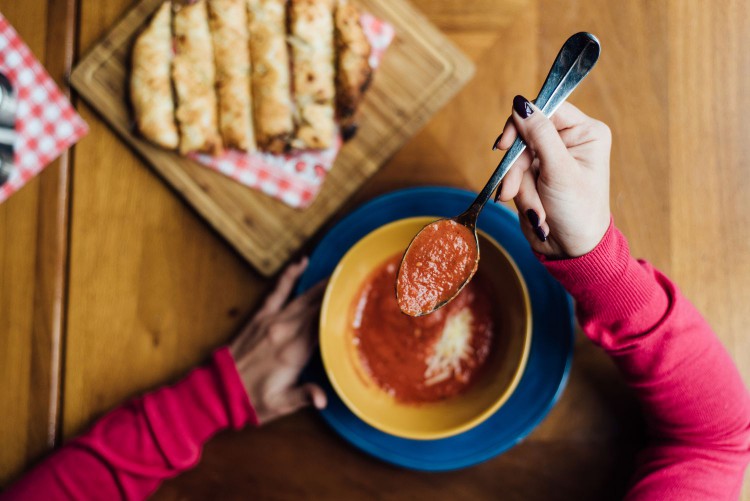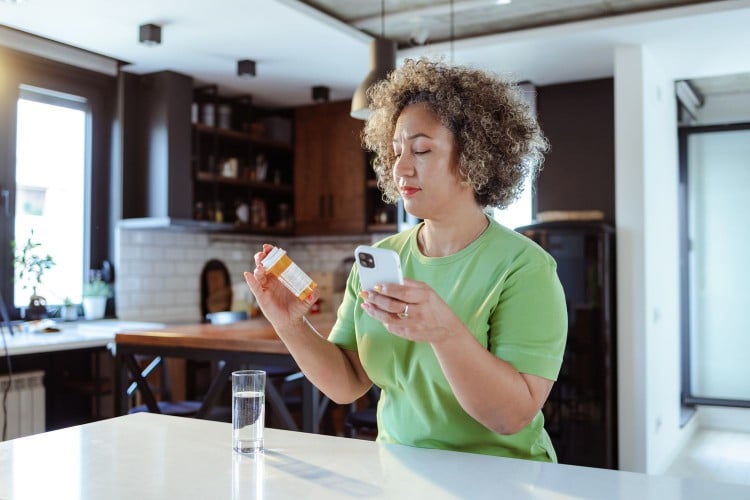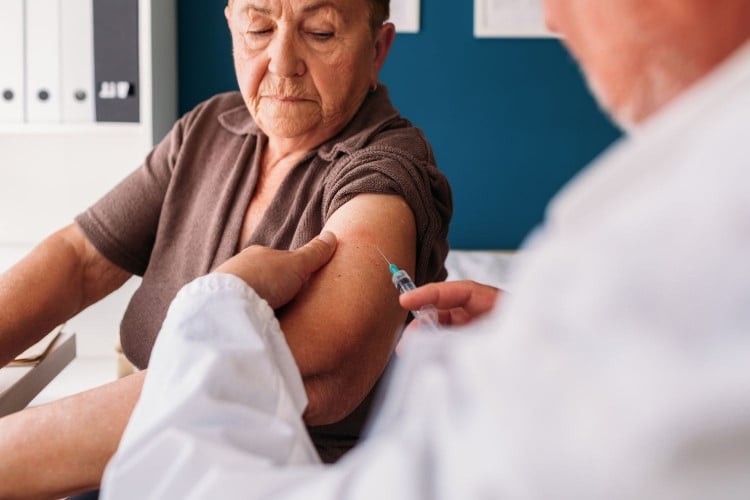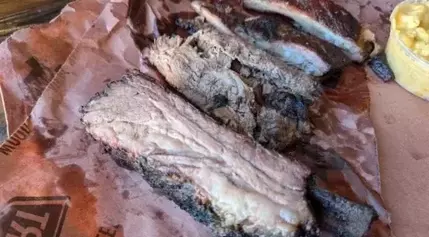
A panic attack is a sudden, overwhelming sense of fear or dread that comes out of nowhere and is often accompanied by a racing heart, difficulty breathing, and paralyzing terror.
These episodes usually reach a peak after a few minutes, or last a short amount of time in total.
Experts recommend patients reshape how they view panic and anxiety, instead focusing on helpful, proven coping methods that can minimize or distract from panic attack symptoms.
Sometimes panic attacks are inevitable, but experts say there are some coping mechanisms you can do to de-escalate the situation.
Sciulli explained that her heart started to pound, sweat poured over her face, and her hands began to shake. She felt weak throughout her body and her mind started racing to search for an answer or a reason.
“Each second seemed to usher in faster thoughts that got more catastrophic,” she remembered. I thought I was having a heart attack or that something terrible was going to happen to me.”
Today, Sciulli uses her experiences with panic attacks to connect with her clients and offer insight into how to cope.
She explained that the starting point for a panic attack is different for everyone.
“A fearful thought or worry could cross their mind followed by the onslaught of physical symptoms, and then those fearful thoughts get reinforced and worse,” she said. “For others, the feeling of a racing heartbeat or tightness in their chest could be what starts the panicked thinking, ‘What’s wrong? What’s happening to me.’”
Sciulli explained that when a panic attack begins, the mind and body are perceiving a threat and responding in a way to counter that threat. This stress response is the same thing you experience when you are escaping danger or defending yourself, she said.
Though panic attacks happen when there is no immediate threat, your body believes there is and is doing what it is designed to do.
Here’s how panic attacks occur, what causes them, and how Sciulli and other experts recommend patients cope with panic attacks.

Panic Attacks Are a Threat Response
According to the American Psychological Association, a panic attack is a sudden, overwhelming sense of fear or dread that comes out of nowhere. It can be accompanied by a racing heart, difficulty breathing, and paralyzing terror.
You also may experience sweating, shaking, tightness in your chest, hyperventilating, increased body temperature, and feeling something awful is going to happen, Meka Allen, DSW, LCSW, the executive director of Embark Behavioral Health in Scottsdale, told Health.
“A person may also believe they are having a heart attack or that they are dying,” she said.
Panic attacks can occur alongside other mental health conditions including anxiety, mood disorders, and substance abuse disorders.
Panic attacks happen suddenly with no apparent cause or trigger, explained Jaryd Hiser, PhD, a psychologist at The Ohio State University Wexner Medical Center and assistant professor, the Department of Psychiatry & Behavioral Health, The Ohio State University College of Medicine.
“These episodes typically reach a peak within minutes and only last for short periods of time (about 15 to 20 minutes),” he said.
It also is a common misconception that panic and anxiety alone are disordered.
“Panic and anxiety are normal and adaptive responses present from birth. We feel those emotions to help us stay safe,” Sciulli said. “Panic attacks occur most when we start to over-generalize what is considered to be a threat or we don’t have the skills to cope with what we are thinking about or feeling.”
14 Signs You Could Be Having a Panic Attack
Several factors including genetics, having close relatives who experience panic attacks, mental health conditions like anxiety or PTSD (post-traumatic stress disorder), and excessive caffeine consumption can elevate an individual’s risk of panic attacks, Stephanie Carnes, PhD, LCSW, LLM, a clinical supervisor at the New York City Psychotherapy Collective, told Health.
“Panic attacks can occur because of chronic stress, anxiety, specific phobias, or an environmental or situational trigger—but the trigger isn’t always obvious,” said Carnes. “For example, I know that my panic attacks tend to be triggered by turbulence while flying...Those who have not experienced panic attacks may dismiss them as overreactions to life stress or ploys for attention.”
Sciulli’s panic attacks started with her thoughts. She explained that humans have thousands of thoughts a day—the majority of which are automatic and out of our control.
“We pay attention to automatic thoughts that get our attention the most,” she said. “So it makes sense that when something terrible or awful crosses our mind, it gets our attention.”
Trying to Prevent Panic Attacks May Not Help
According to Sciulli, practicing mindfulness, engaging in cognitive behavioral therapy (CBT), and giving yourself grace can help control what you want to be thinking about next.
“Catching the panicked thoughts early in their tracks and talking back to them reinforces that while you can’t stop the automatic thoughts that can start a panic attack, you can change the course of your thoughts to stop having a full panic attack,” she said.
But, you are already escalating into a panic attack, these strategies won’t work because your body is too far into the fight or flight response.
“That’s when body-based strategies such as deep breathing, specifically slowing down the rate of breathing, distraction through intense sensations such as using cold therapy or sour candy, or tuning into a really engaging show, song, or podcast is more effective,” Sciulli said.
This can sometimes begin a cycle of stress, noted Hiser. “Sometimes the more we try to prevent panic attacks, the more fixated we become on physical symptoms and fall into the trap of attention bias.”
He explained that focusing on your breathing can sometimes initiate hyperfixation on your breathing—whether it’s too fast, too slow, deep enough, etc. That focus has the potential to turn to stress about what you believe your body is doing.
Instead, change your relationship with panic and anxiety.
“Anxiety is not a bad thing,” Lev said. “Our sympathetic nervous system does what it does and actually, it’s very healthy and good for us. Panic attacks, in reality, bring us back to homeostasis within three to four minutes, but when our minds continue to tell stories that something is bad or dangerous, then what happens is that we retrigger ourselves, exacerbate it, and it continues to get worse and worse.”
Sour Candy for Anxiety Isn't Just a TikTok Trend, Experts Explain How It Really Works
What Experts Recommend You Do During a Panic Attack
For this reason, Whitney Coleman, LICSW, LCSW-C, founder and CEO at Jade Clinical Services—who had her first panic attack when she was five—suggests finding a quiet space where you will not feel overwhelmed and can focus on deep breathing, utilize grounding exercises, and use progressive muscle relaxation to help calm your body.
She noted that sometimes trying to focus on deep breathing in the midst of the situation can be too much, and lead to feeling worse. “But [for me], once I’ve removed myself from the environment, the trigger does not continue to cause panic and thus the symptoms dissipate,” she said.
She encourages patients not to hold their breath, use any substances, or engage in negative self-talk which can prolong the episode and trigger actions like trying to hide the experience or flee the scene.
Likewise, Sciulli suggests taking deep breaths as soon as you notice your heart rate rising and redirecting upsetting thoughts.
“I’m a big fan of using music, podcasts, and physical activity...to redirect my attention,” she said. “I know that it is possible to create habits to support a healthy nervous system and minimize future panic attacks.”
Because panic attacks do not tend to last a long time, Carnes explained the key for her has been to find techniques that allow her to reconnect with her physical body.
“Coping skills that soothe us, ultimately enabling us to surf this intense and unpleasant—but temporary—wave of emotion [are the most beneficial],” she said.
One of her favorites is the 5-4-3-2-1 technique. “This involves naming five things you can see, four things you can hear, three things you can feel, two things you can smell, and one thing you can taste.”
Hiser explained that he uses the TIPP skill (temperature, intense exercise, paced breathing, progressive muscle relaxation) from dialectical behavioral therapy (DBT) with his clients.
“Drastically shocking our body with intense sensation change, for example standing in a cold shower, can be really helpful to get our mind off whatever we are stuck on,” he said.
9 Things To Do if You're Having a Panic Attack
When It’s Time to See a Healthcare Provider
Even when you know the symptoms of a panic attack, seeing a healthcare provider for evaluation may be prudent. Sciulli recommends that anyone with heart conditions, blood pressure concerns, or a history of stroke err on the side of caution and call 911 or go to their local urgent care if they’re unsure of their symptoms. “Panic attacks are usually experienced with an intense onset and last only a few minutes,” she explained. “Other more serious physical concerns usually have a slower symptom onset and don’t resolve with using any of the strategies above. Medical professionals are happy to assess your vitals and answer questions.” If you do find that what you are experiencing is a panic attack and not a medical emergency, you may want to consider seeing a mental health professional. Most of the strategies for preventing and coping with panic attacks are best learned in a trusting therapeutic relationship, said Carnes. She advises people to explore their experiences that may be underscoring their panic attacks, as well as troubleshoot triggers and develop effective coping skills, with the help of a licensed therapist.
These 7 Lifestyle Factors May Help Lower the Risk of Depression, New Research Shows
